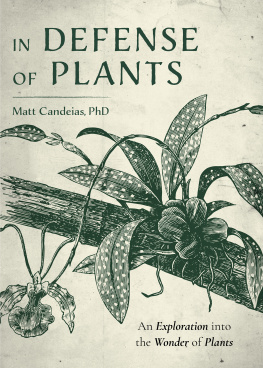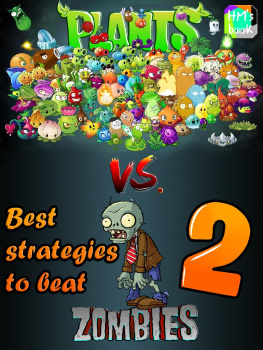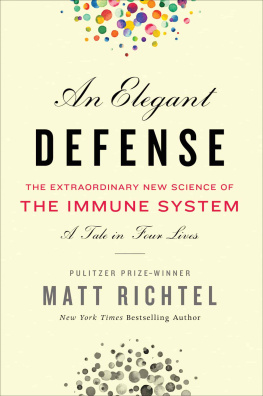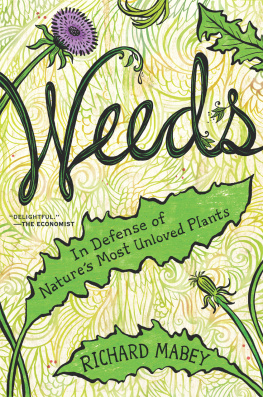Matt Candeias - In Defense of Plants
Here you can read online Matt Candeias - In Defense of Plants full text of the book (entire story) in english for free. Download pdf and epub, get meaning, cover and reviews about this ebook. year: 2020, publisher: Mango Media, genre: Religion. Description of the work, (preface) as well as reviews are available. Best literature library LitArk.com created for fans of good reading and offers a wide selection of genres:
Romance novel
Science fiction
Adventure
Detective
Science
History
Home and family
Prose
Art
Politics
Computer
Non-fiction
Religion
Business
Children
Humor
Choose a favorite category and find really read worthwhile books. Enjoy immersion in the world of imagination, feel the emotions of the characters or learn something new for yourself, make an fascinating discovery.
- Book:In Defense of Plants
- Author:
- Publisher:Mango Media
- Genre:
- Year:2020
- Rating:4 / 5
- Favourites:Add to favourites
- Your mark:
- 80
- 1
- 2
- 3
- 4
- 5
In Defense of Plants: summary, description and annotation
We offer to read an annotation, description, summary or preface (depends on what the author of the book "In Defense of Plants" wrote himself). If you haven't found the necessary information about the book — write in the comments, we will try to find it.
In Defense of Plants — read online for free the complete book (whole text) full work
Below is the text of the book, divided by pages. System saving the place of the last page read, allows you to conveniently read the book "In Defense of Plants" online for free, without having to search again every time where you left off. Put a bookmark, and you can go to the page where you finished reading at any time.
Font size:
Interval:
Bookmark:

In Defense
of Plants
An Exploration
into the Wonder
of Plants
Matt Candeias, P h D

Coral Gables
Copyright 2021 by Matt Candeias
Published by Mango Publishing Group, a division of Mango Media Inc.
Cover, Layout & Design: Morgane Leoni
Cover Illustration: mdlne / Adobe Stock
Mango is an active supporter of authors rights to free speech and artistic expression in their books. The purpose of copyright is to encourage authors to produce exceptional works that enrich our culture and our open society.
Uploading or distributing photos, scans or any content from this book without prior permission is theft of the authors intellectual property. Please honor the authors work as you would your own. Thank you in advance for respecting our authors rights.
For permission requests, please contact the publisher at:
Mango Publishing Group
2850 S Douglas Road, 2nd Floor
Coral Gables, FL 33134 USA
info@mango.bz
For special orders, quantity sales, course adoptions and corporate sales, please email the publisher at sales@mango.bz. For trade and wholesale sales, please contact Ingram Publisher Services at: customer.service@ingramcontent.com
or +1.800.509.4887.
In Defense of Plants: An Exploration into the Wonder of Plants
Library of Congress Cataloging-in-Publication number: pending
ISBN: (p) 978-1-64250-453-8, (e) 978-1-64250-454-5
BISAC category code SCI011000SCIENCE / Life Sciences / Botany
Printed in the United States of America
Contents
Chapter 1: A Rocky Start: How I Learned to Love Plants
in the Bottom of a Quarry
Why in Defense of Plants?
P lants dont really have a voice in todays busy world. In fact, most people I talk with think plants are boring. It is a sad reality that when most people step outdoors, at best, they see a static green wall. If they do notice plants at all, it is likely those that either cause them issues (e.g. poison ivy in the hedge or a rebel dandelion on the lawn) or that they have some sort of use for (e.g. lavender, corn, or bananas). Whether for economic gain or some purported medicinal benefit, we only seem to care what plants can do for humans. This is a travesty because plants are incredible living organisms that conquered land long before any animal crawled out of the ocean. They are fighting for survival just like any other form of life and their sessile nature means they are doing so in remarkable ways. If there is one thing that my efforts with the In Defense of Plants Podcast has taught me, its that even the slightest familiarity with plant biology, ecology, and evolution will demonstrate that plants are far more dynamic than any of our forebearers could possibly have imagined. Sadly, these stories often go untold.
Hop online or pick up a book and you will find that a vast majority of popular plant literature focuses on two major areas of interest: folklore and herbalism. Imagine wanting to look up information on animals such as black bears or pangolins, but all you can find is how to cut them up, process their organs, and make tinctures or food with them. Any rational person would be outraged by this. These animals are so much more than just what their parts can supposedly do for us. And yet, such tales are the standard for plants. Its almost as if interest in plants peaked in some bygone era before we really understood what plants are about. Over the last century, science has revealed that plants arent static backdrops to more charismatic life forms like birds or mammals. Plants are active players in the drama that is life. Even more, they are largely responsible for life as we know it. Every terrestrial biome on planet Earth begins with plants. Aquatic biomes arent exempt, either. Aside from deep-sea thermal vents, aquatic systems around the globe depend on photosynthesis, whether it be from algae, sea grass, countless species of phytoplankton, or plants washed into the water from the land.
At the heart of it all is photosynthesis. This wonderful biological Rube Goldberg allows plants to capture energy from our nearest star and use it to break apart water and CO2 gas to build complex organic molecules like sugars. Without photosynthesis, we would be living on a closed, finite planet. Hell, lets be honestwithout photosynthesis, we wouldnt be here at all. Our own story is tied to plants, yet we treat them like inert tools. Some of them move at alarming speeds to capture animal prey while others wage chemical warfare below ground, unbeknownst to m ost of us.
My goal in writing this book is that I want you to see plants, even if for a moment, how I see plants. Maybe some of you will even be bitten by the botanical bug. Our planet certainly could benefit from more plant fanatics running around. What follows are stories about how plants have changed my perspective on the world. As you read, I ask you to keep a couple things in mind. For one, at any point in this book, you might be thinking something to the effect of you forgot to mention this or that. Did I? Or perhaps is that simply a tale for another time? In writing a book like this, one must always remember that there are endless examples and facts to draw on from nature. It is simultaneously fascinating and daunting. This book is not meant to be a complete story, nor is it entirely autobiographical. Instead, it is an ode to my journey and experiences thus far.
The second is, while I strive for scientific accuracy in my communication constantly, this is not meant to be a textbook. A wise person once told me (I wish I could remember their name) that for science communication to be successful, the stories need room to breathe. As such, I take some liberties in my choice of words. I want to make it clear that I do not think plants are conscious in any way that we can comprehend. The rise in consciousness as a topic of discussion, I think, stems from a lack of imagination. Plants do not have brains; they do not have a nervous system. As far as we can tell, there is no central processing unit in plants. Plants operate largely through diffuse chemical signaling, and to think that any human possesses the capabilities to understand how a plant interacts with and perceives the world around it is to demonstrate a hubris that can only come from our narcissistic minds. I take some liberty in anthropomorphizing certain situations purely because I think it helps the reader connect to plants a little bit easier. At no point should you interpret that in any way other than as a convenient metaphor.
Finally, evolution does not have agency. It is not a hierarchical process. Evolution via natural selection works with what it has available to it, culling things that dont work and rewarding those that do by allowing them to live long enough to reproduce. Evolution is an unthinking and unfeeling force of nature, but that doesnt mean we have to talk about it in those ways. I would much rather someone walk away from this book appreciating that evolution occurs and has shaped all life on this planet in remarkable ways than bore the reader with hyper-specific jargon. If that bothers you, there are shelves of academic books waiting for you. What follows is a celebration of plants as the incredible organisms that they are. These pages are filled with personal discovery and scientific wonder, and it is my hope that each of you comes away thinking about plants a little bit more in your daily life. I am here to defe nd plants.
A Rocky Start: How I Learned to Love Plants in the Bottom of a Quarry
I have a confession: I used to think plants were boring. I wasnt alone, either. I know for a fact that this is an opinion shared by far too many people. Thats not to say I didnt love nature. Far from it. I have always been a nature nut, but my early interest in the outdoors was consumed by things that could move like insects, fish, lizards, and snakes. Fish were my first real obsession. My grandfather, who was an avid gardener, used to take me to a nearby creek that ran through town, and we would spend hours trying to catch minnows. Fish just seemed so otherworldly. They lived in a medium that I could not, and their entire anatomy was so different from what I was used to with my hands and legs. I loved the mystery that surrounded fish, and it never reall y left me.
Font size:
Interval:
Bookmark:
Similar books «In Defense of Plants»
Look at similar books to In Defense of Plants. We have selected literature similar in name and meaning in the hope of providing readers with more options to find new, interesting, not yet read works.
Discussion, reviews of the book In Defense of Plants and just readers' own opinions. Leave your comments, write what you think about the work, its meaning or the main characters. Specify what exactly you liked and what you didn't like, and why you think so.









